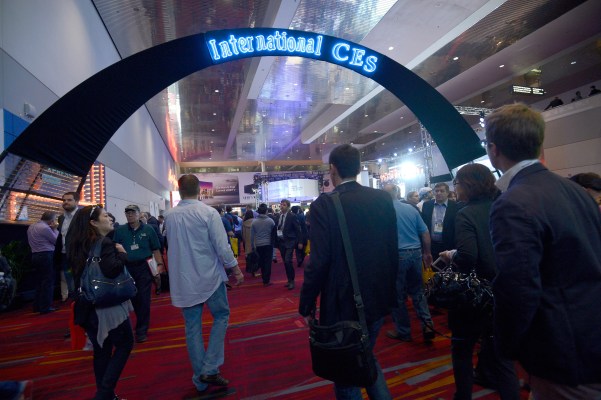CES 2020 got in just under the wire, ahead of COVID-19 reaching true international pandemic levels. And until today, the show’s governing body, the CTA, was planning to keep its record unbroken. Today, however, CEO Gary Shapiro announced via video that the Las Vegas event has been canceled. Instead, CES 2021 will follow the lead of the rest of the industry as an online-only event.
The news won’t come as a surprise to anyone following the industry. Even January 2021 seems like an extremely optimistic timeline, social distancing measures or no. While Berlin’s IFA still plans to go forward this year, all other big tech shows have been canceled or gone all digital for the foreseeable future.
“We concluded it is simply not possible to safely gather over 100,000 people indoors with a raging COVID-19 virus and no real hope for a tested and widely available vaccine by January,” Shapiro writes in a post on LinkedIn. “The world does not need more COVID-19 cases, and we decided we would do our part by ensuring we are not helping spread the disease.”
In addition to hosting a huge number of people in an indoor venue, the international nature of the event makes it a prime vector for the continued spread of COVID-19. Not to mention the fact that the United States continues to lead the world in cases, by far. In spite of, well, everything, Vegas mayor Carolyn Goodman was aggressively pushing reopening plans way back in April.
Anecdotally, I’ve spoken to a number of regular attendees, and there remains a general sense of discomfort around the idea of attending a show like this. And to put it more crassly, becoming a potential hotbed for the spreading of this seemingly endless pandemic would be a major black eye for the organization. Canceling the show is the right move here.
And certainly the CTA is well positioned to help foster the continued popularization of online-only events. The organization has the connections and the eyeballs of the world when it comes to serving as a platform for industry news and product launches.
“[W]e commit to producing the best possible global digital innovation event,” Shapiro writes. “We will spread the gospel of 5G, artificial intelligence, self-driving vehicles and new forms of mobility, digital and telehealth, resilience, robotics, drones, new forms of entertainment, 8K Ultra HD screens and smart TVs to the curious, entrepreneurs, investors, business and media who can access the best of CES from their homes and offices.”
Of course, pulling off a show of this size will be tricky. Here at TechCrunch, we certainly understand the steepness of the learning curve when it comes to transitioning to digital events. Perhaps most difficult of all for the organization will be maintaining the the presence of larger companies, many of whom have already eyed their own events to make announcements.
E3 2020 is certainly a bit of a cautionary tale. This year’s event was set to be a big one with the upcoming launch of two major consoles. Both Sony and Microsoft have opted to use their own events to make product announcements for the PlayStation 5 and Xbox Series X, respectively. Notably, Samsung also announced its own launch event after officially pulling out of IFA over safety concerns.
The digital event is set for the first week of January, with more news arriving soon. “We plan to return to Las Vegas for CES 2022, combining the best elements of a physical and digital show,” the CTA writes in a press release. Here’s hoping that will be an option by then. At this rate, however, who knows?

